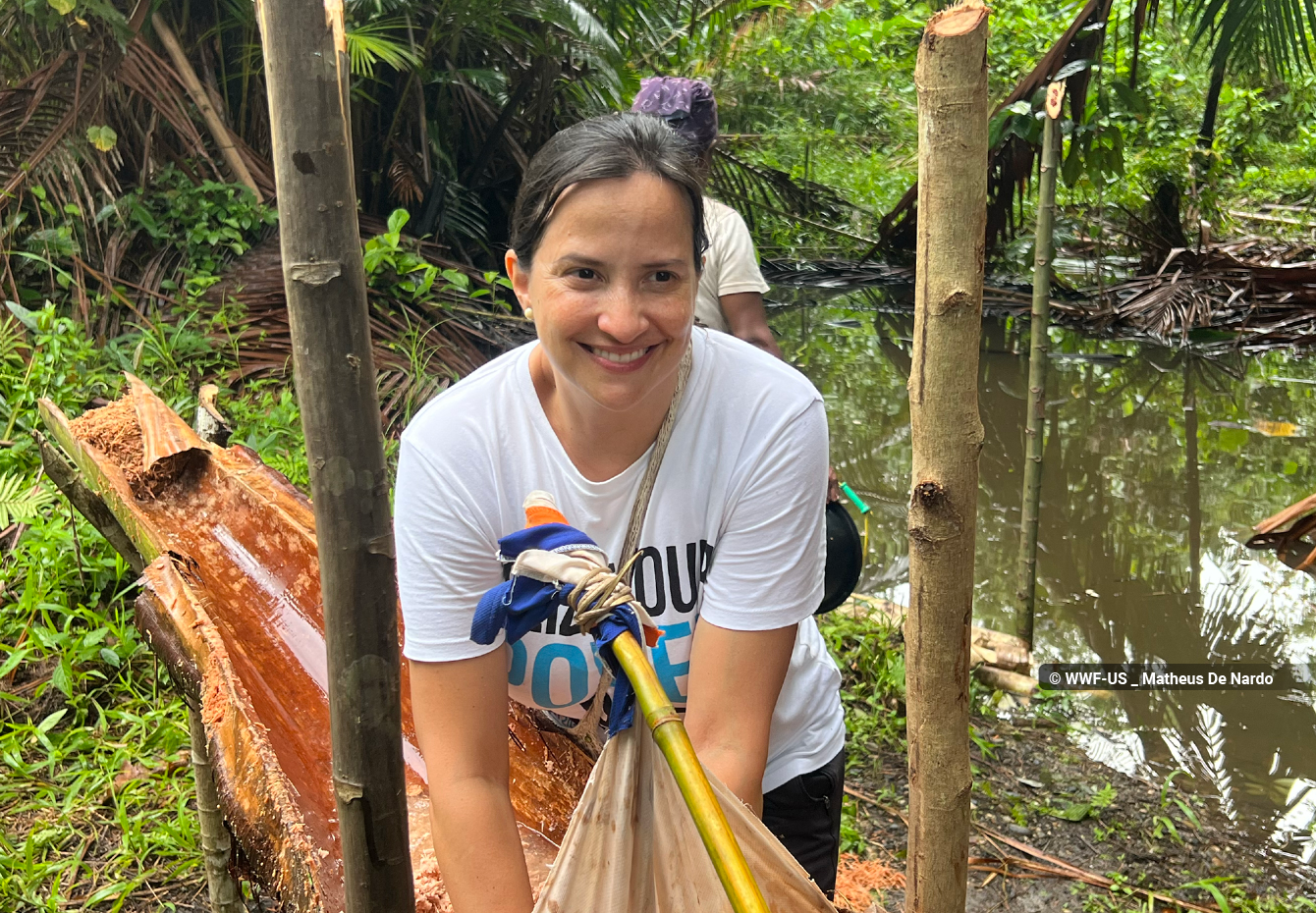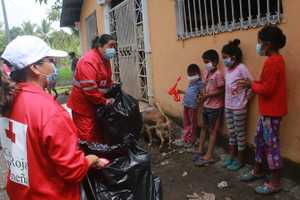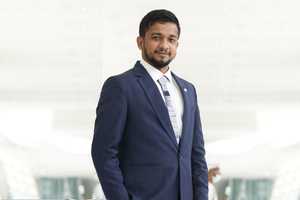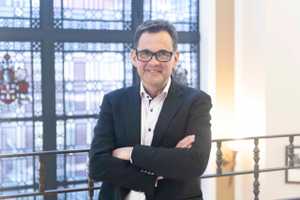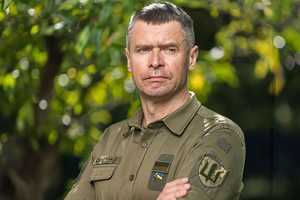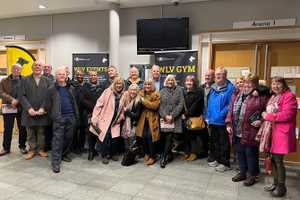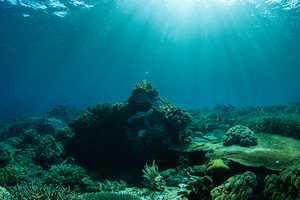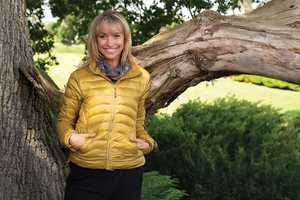Growing up in the concrete jungle of one of the world’s largest cities, Mexico City, it’s easy to see why escaping to the countryside would be a welcome relief.
Josefina Braña Varela was fortunate to grow up in a family that would ‘take to the hills’ at the weekend, and it’s these trips to the mountains surrounding Mexico City that laid the foundation to what was to become Josefina’s future career.
“For me, it was a very special thing. It felt magical. It really instigated my sense of curiosity and just getting to appreciate nature. Being in a cooler place was nicer – the air was crisp and fresh, as opposed to in the city where it was very hot and cramped.”
Not that her career championing the environment was planned – but with a decade at the World Wildlife Fund (WWF) US, Josefina has plenty to be proud of in her career, and current role as deputy lead for the forest team.
Her studies actually began with a bachelor’s degree in international relations, studying in Mexico City, but she quickly discovered she found it “a bit boring” if it didn’t focus on the power of collective action for a specific topic. Then, a minor in sustainable development and environment began a journey that led to a Chevening sponsored programme with the University of Wolverhampton’s renowned Centre for International Development (CIDT).
It was in the winter of 2006 that Josefina took a leave of absence from her job in the Mexican government to study a Governance and Environmental Democracy programme at our Telford Campus, also guest lecturing to share her own expertise.
“It was a fantastic, although challenging time. It was dark by 3pm, and there were only the Chevening people around, so it felt a little lonely, but that made a huge impact on the friendships that I forged in my time there.
“My time in Wolverhampton helped me realise that we need to embrace diversity and to understand that conservation is not a onesize-fits-all issue. It must be very tailored to the right context and conditions of the given place where you work.
"Conservation starts from inclusive processes, making sure that you are respecting the rights of stakeholders on the ground. And that has to do with opening your eyes to diversity – that there are different ways to promote conservation and sustainable development if you understand what local people really need.
“In my time at Wolverhampton I had the chance to share with people from Brazil, Ecuador, Ghana and Vietnam – promoting a diverse exchange of opinions, perspectives and visions. I feel that’s when you start getting a richer view and can be innovative and get out-of-the-box ideas.”
Building upon her links and experiences in Telford, Josefina went on to study a master’s degree in public policy, and from there, her career in sustainable development and the environment really moved on. Currently based in Washington, DC, leading a team of 35 in the forest team, much of her work relates to public sector incentives, corporate engagement, working with Indigenous peoples and local communities to conserve nature, as well as influencing infrastructure guidelines so that ultimately built infrastructure incorporates protections for our vital ecosystems and biodiversity.
Throughout her career, Josefina has worked with representatives of Indigenous peoples to bring the topic of the United Nations Framework Convention on Climate Change (an international environmental treaty to combat “dangerous human interference with the climate system”) to the top of the global agenda. She has attended climate negotiations, spoken at events, and connected the relevant parties so that joined-up working can lead to real change on the ground.
It’s been a long road, but she’s optimistic now that there are very tangible results of that policy and advocacy. She’s also passionate about ensuring Indigenous peoples’ and communities’ voices are heard.
Although she now rarely undertakes practical fieldwork, Josefina is passionate about the importance of regularly visiting the field.
“When I do go to the field it’s mostly to make political connections or to leverage the right support from donors. I think it’s important for me because it keeps me honest in terms of understanding the needs on the ground and what could work or not, and to be an ambassador in selling the vision to any potential donor.
If I don’t go to the field for a couple of months, I start getting uneasy because I feel like I’m too far away from the reality. For me, it’s important to stay connected to the work on the ground. I always learn so much when I visit.
“There is an issue of rights and recognising the rights of Indigenous peoples and local communities.
"We need to provide opportunities and the right support for them to continue to be a defence line against deforestation.
"How can we make sure that infrastructure is developed in a way that benefits people, but also isn’t detrimental to nature? How can we roll out guidelines for sustainable infrastructure, or plan so that deforestation happens in the least impactful way for nature?
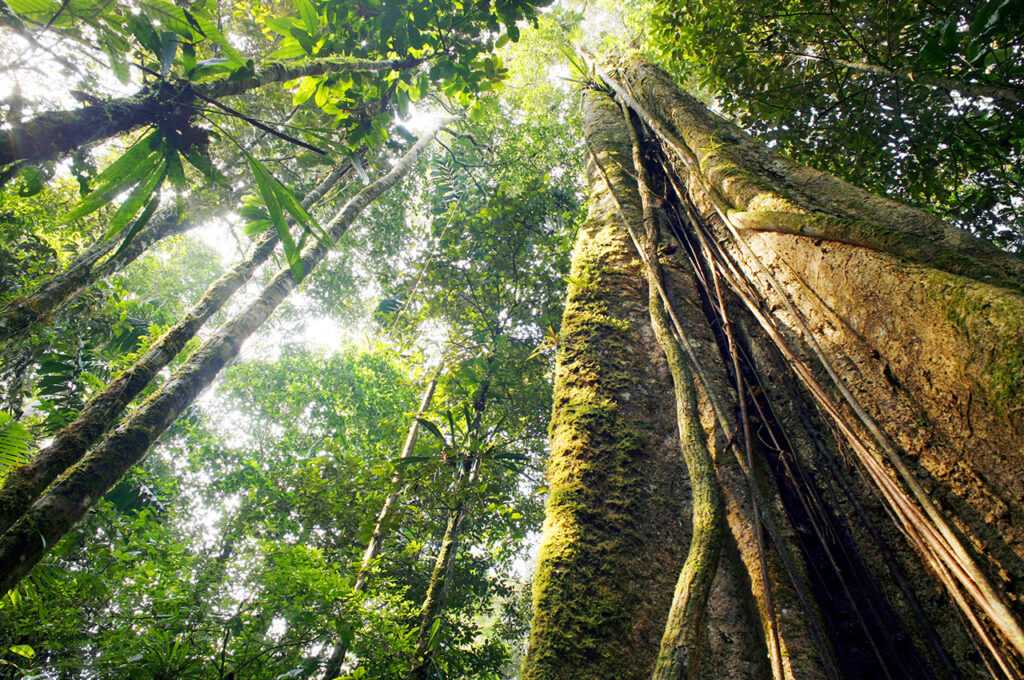
“We need to understand the trade-offs and get a right balance where people are at the centre, but look for benefits for climate and nature – because otherwise it’s not going to work.
"I think there’s a misunderstanding or misconception that development and conservation are always at odds, but the more you go to the field and talk to the local stakeholders, you realise that actually, Indigenous peoples have been forest stewards for many, many years and they have protected the forest because it is an integral part of their identity.
“But they need support to continue to be that line of defence, and importantly, their rights and land tenure need to be recognised for them to continue to play that role.”
So, what does the future hold? As in most cases, Josefina is working to inform the next generation, though sometimes she has to be mindful of how she conveys the harsher realities of the climate crisis:
“Every year I do several talks with students – ranging from college students at Harvard, Tufts, and Yale to children in primary school – on forests, deforestation, and the importance of the forest for climate change. I always get very hard questions! Recently a couple of kids were apparently super stressed out after my talk!"
“I felt horrible and had to follow up on that. But you have to convey that there is a problem, you just don’t want to put the burden on the kids. I tell them: ‘Your job as a kid is just to go out and enjoy the forest. Just be in the forest. The more you enjoy it, the more you’re going to value and grow up wanting to protect it.’”
A lesson that’s not just for children, but for the grown-ups too: we should all get out and enjoy our forests and do what we can to help save them for generations to come.
